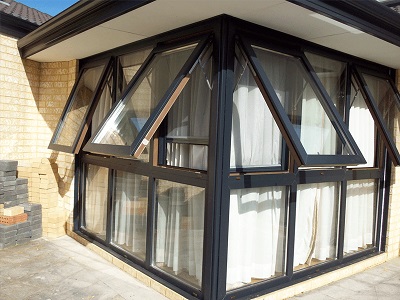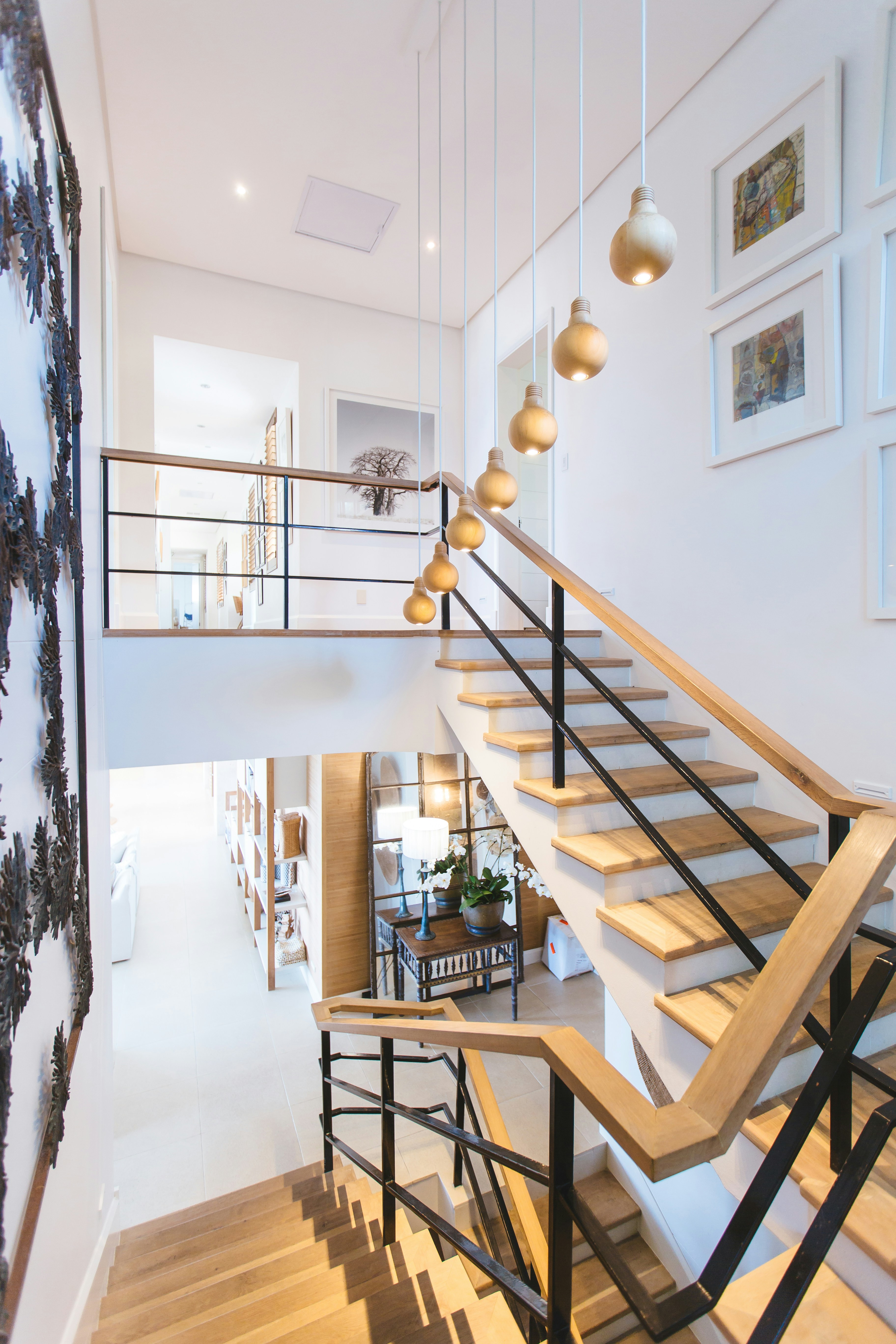Our users frequently bombard us with questions about the ins and outs of buying uPVC windows or the complications they encounter with alternative types. This constant curiosity led us to consolidate our wealth of knowledge into a comprehensive guide on uPVC replacement windows – a one-stop-shop for all your window-related inquiries.
When embarking on the quest for new windows, you likely have a checklist of must-haves. At the top of that list are probably windows that can keep you and your family safe and cozy throughout the year. However, navigating the vast sea of websites and options can be daunting.
Fear not, as our guide to uPVC double-glazing windows is here to be your compass. We'll dive into everything, from costs and essential considerations when choosing an installation company to outlining your legal rights post-contract confirmation and providing tips for ongoing maintenance. So, buckle up as we navigate the world of uPVC windows, ensuring you make informed decisions for a safe, warm, and stylish home.
All of this information has been sourced by qualified tradesmen currently working in the glazing industry, giving you all the information you need to make the right investment for your home.
Contents
Benefits Of Double Glazing
Types Of Window Frames Available
uPVC Window Cost Guide
Seven Questions To Ask Your Window installation Company
Know Your Legal Rights
Types Of Glazing Available
Cleaning And Maintaining uPVC Windows
Benefits of double glazing
Our readers are constantly being told by various companies how amazing double glazing is and how it will change their lives at home. But what are the real benefits of installing double glazing in your property? In this section, we go into more detail about what positive changes it can make to you and your families day-to-day routines.
Lower energy bills
Double glazing is one of the few home improvements that will enable you to see a direct return on your investment over time. You pay more for double glazing upfront but in the long run it reduces energy consumption, producing lower energy bills, as the insulation is vastly improved.
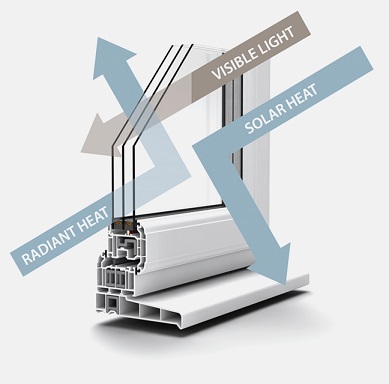 Winter warmth
Winter warmth
Homes with single glazed windows lose a lot of heat during the winter and do not retain the same level of natural sunlight as double glazing. The heating will be used less during the winter with double glazing and the house will warm up a lot quicker on those cold mornings before work.
Summer cool
Not only does double glazing insulate the heat inside, it prevents some of the external sun coming in too. It can trap some of the UV rays preventing the sun from becoming overbearing in the room while also keeping the temperature more manageable.
Less condensation
Those who own older windows, especially with timber frames, face an ongoing battle with condensation. It eventually leads to mould and mildew as well as potentially rotting the wood. It can even spread onto nearby walls and ceilings creating potential health risks. Double glazing reduces excess moisture on window panes making it far less of an issue.
Noise reduction
This is ideal for those living in built up urban areas as double glazing can absorb external sound waves to dampen noise and interference. In some cases this can be as much as 60%. If you live near to a busy road, an airport flight path or noisy neighbours, double glazing is an investment worth making.
Enhanced security
Doors and windows are the first entry points for most burglars attempting a break in. Double glazed windows make it harder for them to get in, providing you have good locks in place. Laminated and toughened glass is extremely difficult to smash and they are more likely to give up and move on if they can’t get in easily.
Increased resale value
Buyers always look for homes with added features and double glazing is a great way to create extra value in your property. This tells the buyer the house is well insulated and ensures less expense on their part in the long run. It also helps sell an old property just as well as a new one.
Reduced interior fading
Furniture, curtains and carpets exposed to UV light for too long can start to fade over time. Used with the right glass type, double glazing can help reduce the colour being drained out of your interior design.

Types of window frames available
There are four main types of window frame available on the market today with uPVC windows being by far the most popular choice amongst homeowners. To give you a clearer idea of all four, we asked our window experts to provide an overview all of four to help our readers understand the alternatives.
uPVC windows
These are perfect for any house because they are extremely low maintenance windows. They don’t need to be painted or sealed and are easily cleaned with just water and detergent. uPVC is also one of the most durable materials around, used in water and sewer pipes because it will last anywhere between 50-100 years. Those installed in houses since the 90s are still in near-perfect condition because they do not fade even under long periods of exposure to UV rays.
uPVC is a non-conductive material which means it does not transfer outside heat, helping to keep the structure cooler, even during the height of summer. When combined with double glazing you get the most energy efficient windows available. uPVC can be recycled up to 10 ten times, so the frames can be put to use again when replaced and are completely rot resistant.
Aluminium windows
These window frame types have a reputation for being long-lasting and durable. Some homeowners in new builds go for this option because the sleek and modern aesthetic complements the style of the building.
One of the biggest drawbacks for aluminium windows is they are not very energy efficient, holding a lot of external heat and adding to the overall temperature of the building. They are also an expensive choice compared to uPVC, although a little cheaper than timber windows.

Timber windows
Wood is an extremely durable material and these tend to uphold against the elements for quite a while. They have been used in housing for hundreds of years and have their own unique, classic style that always attracts buyers to invest.
Their expense can be something of an issue for some, and if not protected, the wood is prone to contraction and expansion due to changing moisture levels in the wood. In certain climates they will also rot and wear away, weakening the glass and security of the property.
Fibreglass windows
This is seen less commonly on properties but the material is durable and are relatively easy to maintain over time. The biggest advantage it offers is resistance to harsh weather conditions and temperature changes because the glass and frames share the same material.
What many people do not enjoy about fibreglass windows is their appearance, which can appear dull and uninspiring, even after painting. The cost is also prohibitive, with prices higher than uPVC, timer and aluminium alternatives.
uPVC window cost guide
There are a number of different factors involved when it comes to pricing up the installation of uPVC windows. This means the cost varies from property to property, but in this section we are going to provide some price guidelines to help give you a starting point so you can start thinking about your available budget.
All of the information below has been sourced directly from glazing professionals who have advised on all the pricing guidelines.
First of all, here are some of the factors that will impact on the final cost:
- Special glazing: This can be anything from toughened, energy efficient, self-cleaning or triple glazing
- Opening sections: There may be additional charges added to the cost per opener
- Design: For example, sash windows are a more specialist – and more expensive – option than standard casement windows
- Frames: The frame quality will add an extra element to the cost
- Location: Different areas can be cheaper, or cost more, depending on where you live
- Window Energy Ratings: To get the highest rated energy efficient windows you have to be prepared to pay more
This may seem like a long list of things to worry about, but in the main, suppliers are aware you will be searching for more than one quote and will try to be as competitive as possible. Never be worried about negotiating or asking for a discount – you’ll be surprised what you can get when you do!
Rough cost estimates
https://www.upvcwindowsfitted.co.uk/upvc-windows-prices/
Here are a few examples of what you might expect to pay for uPVC casement windows:
- 4-6 windows: Between £2,200 to £2,800
- 8-10 windows: Between £3,000 to £3,800
- 13-16 windows: Between £5,200 to £6,000
The above prices are based on an entire house being fitted with uPVC windows, but what do they cost individually by size when fully fitted?
| Size | Specification | Fitted cost |
| 600 x 900 x 1 opener | white uPVC, B rated | £200 - £250 |
| 1200 x 1200 x 1 opener | white uPVC, B rated | £300 - £350 |
| 950 x 1500 x 1 opener | white uPVC, B rated | £450 - £500 |
The cost of tilt and turn windows
| Size | Specification | Fitted cost |
| 1200 x 1200, single window | white uPVC, C rated, double glazed | £260 - £360 |
| 1200 x 1200, 2 pane, 2 open | white uPVC, C rated, double glazed | £320 - £450 |
| 3000 x 1200 , 3 pane, 2 open | white uPVC, C rated, double glazed | £570 - £660 |
The cost of bow or bay windows
| Size | Specification | Fitted cost |
| 2500 x 1500 3 pane | White uPVC | £1,000 - £1,500 |
| 3000 x 1500 mm 4 pane | White uPVC | £1,500 - £1,800 |
| 4000 x 1500 mm 5 pane | White uPVC | £1,900 - £2,600 |
Seven questions to ask your window installation company
Putting new uPVC windows on your home is a huge investment that will benefit the property and everyone living in it. While you want to choose the best frames possible, you also need to make the right choice when it comes to the installation company. Get it right, and you’ll have a fantastic set of windows for years to come. Choose a bad company and you’ll be paying for expensive repairs and a rueing a lot of wasted time.
To help you find the right company for your uPVC windows, here are seven key questions you should ask them.
Are you full insured, licensed and bonded?
This is important because you need to ensure both your property and any work carried out on it are fully insured if there is an accident. A bonded and licensed professional company offers assurance that you are working with a reputable contractor, while giving you options in the off-chance that something does go wrong during installation.
Is this an estimated or fixed quote?
You need to ask this and get it in writing in a contract because an estimate will only be a rough calculation of how much it will cost you. Check the quote also breaks down the material and labour costs while also including VAT. You do not want to commit to a price only to be handed a higher invoice once the job is completed.
What is the time schedule for completion?
While it may seem obvious, we’ve heard from many readers over the years who have regretted not asking this question. You need to know how long the installation will take and how much disruption it may cause to your daily routine. If you have children or elderly relatives, you want to ensure you can make alternative arrangements if needed. A reputable contractor will be able to tell you how long and what’s involved before any work has begun.
Who will be installing the windows?
You may assume that just because a company has given you a quote that their own fitters will be carrying out the work. This is not always the case. Sometimes, they may subcontract the job to an entirely different company. In this scenario, ask who they are and check for same insurance credentials as per question one. Request references and do your own online research on review sites. If you’re not satisfied, use another company instead.
Are you meeting building regulations and handing permits?
Most window installations do not require planning permission but always double check first! If you do, then ask if the contractor is managing this aspect. Every company has to adhere to current building regulations, so this is an absolute must. You need to make sure the company can perform the job to satisfactory standard, so this is vital.
Will you provide any paperwork once the project is completed?
Before committing to work with any contractor you need to know what sort of documentation they will provide upon completion. Whether it’s a warranty to cover the materials or a full checklist of all the work done, always make sure this is made clear at the start. This is important as it serves as a record of what has been done and may be required in the future for proof of work completed. Especially if you are moving home and handing over the lease of the property to another tenant in the future.
What will happen to my deposit during the installation?
There may be occasions where the window company request an initial deposit upfront so they can buy the required materials for the job. You must always ensure you get a clear receipt of the transaction and that the money is placed into a secure deposit protection scheme. This is a third party that will safeguard the money while the work begins. You should also receive a certificate providing a clear record of the transaction. Never pay in cash and if a company asks you to then go elsewhere.

Know your legal rights
You should be aware that there are laws which will offer some protection when you purchase uPVC windows for your home.
If you run into difficulties once the contract has been signed, you will need to know how you can raise a complaint about the windows or installation company.
The information provided throughout this guide will help to reduce the possibility of this happening, as the more reputable the company, the less likely you are to experience any issues.
What are your rights?
This will depend on a number of different things and we’ve listed how your right to cancel can differ in these circumstances:
- You will have no automatic right to cancel a contract if your windows were custom made specifically for your home.
- If you signed the contract on the premises of the window installation company, then you will not have the right to automatically cancel. This is referred to as an ‘on premises contact’.
- You were visited at your home by the installation company and you agreed to the contract at a later date. Similar to the above, this is also known as an ‘on premises contract’ and nullifies your right to cancel automatically.
- Agreeing to the contract at somewhere other the installation company’s premises is known as an ‘off premises contract’. By law you should be given a 14 day minimum review period and within that window you are legally entitled to cancel the contract.
Even though by agreeing to an ‘on premises’ contract or having bespoke double glazing installed means the company doesn’t legally have to offer the right to cancel, it can still be included in your contact, so it is worth discussing this at an early stage.
The details of the contact
Before any work commences and a window installation company can begin the contact, by law they must provide you with the full terms. This will include details of the services and products being provided and installed, the full cost and the date on which the installation will occur. This ensures the service and goods you are paying for are received as and when expected.
An ‘off premises contract’ will mean that all of this information has to be supplied to you on paper. Only if you agree to another ‘durable medium’ which will mean you receive the information by either email or text message.
For an ‘on premises contract’ by law the window installation company does not have to supply the same level of information. However, the detail you do receive is still bound by law, so it is in your hands to ask for as much detail as possible.
The installation company must supply you with a copy of the contract (or at the very least confirmation of the contract) either before, or as the new windows are being delivered to your home, and always before any installation work begins.
If you have an online contract, you can receive this information online before going ahead with the order. This must already be confirmed for receipt in a ‘durable medium’ (text/email) no later than the delivery of the new windows and before installation work begins.
Types of glazing available
Now you’ve made a decision to invest in uPVC windows, but the next big choice revolves around the type of glazing you want to install on your home. In many cases it will be double glazing, but what if you want a more specialised version, what exactly are your options? Our experts have provided the following information to give you a clearer idea:
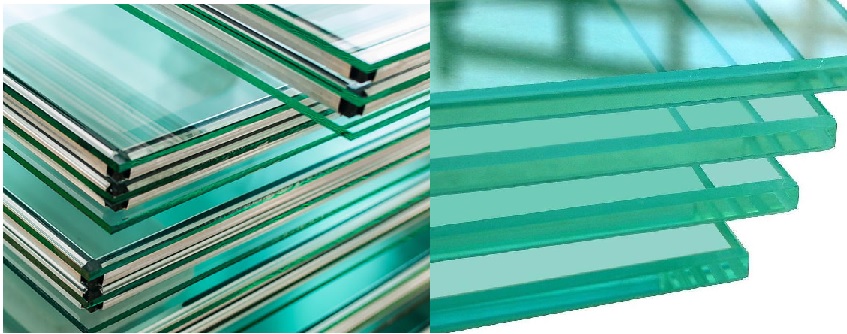
Float glass
This is the most common type of glass available, and remains the starting material for either toughened, laminated or coated variations. There are varying degrees of thickness to choose from and it offers a very high degree of light transmission.
Toughened glass
This type of glass contains a higher compressive stress than normal glass of the same thickness. This makes it far more resistant to impact breakage. If it does receive an impact blow, the glass will shatter into small fragments, rather than large jagged pieces, reducing the likelihood of any injuries.
Laminated glass
Similar to how windshields react, laminated glass is likely to crack on impact and more likely to hold in place than fall out of the frame. It is one of the most secure types of glass available given the level of protection it provides. Laminated glass is always known for blocking out a large percentage of UV rays.
Tinted glass
A great way to control heat gain and glare from UV sunlight. This has the added benefit of preventing UV fading to carpets, window dressings and furniture. While the external view is tinted, you can see outside without issue, which also gives you more privacy in your home.
Obscured glass
This is more commonly used on front doors, or larger bay windows to get the maximum effect. Patterned glass does improve privacy but the downside is it transmits less light into the room compared to standard float glass, which is not ideal during the winter months when it gets dark early.
Mirrored glass
Mirrored glass features a metal coating that is applied to one side of the glass before being sealed with a protective layer to create the reflective finish. It is mostly used for interior design purposes, especially in smaller properties to create the illusion of larger space.
Low E glass
A thin metallic coating is applied to the surface helping to reflect thermal radiation. Heat is retained during the colder weather while reflecting away heat during the warmer months. There are other options such as argon gas filling, or warm edge spacer bars which add to the overall energy rating.

Cleaning and maintaining uPVC windows
Once you have gone through the process of planning and hiring the right window installation company and seeing your wonderful new windows slot into place, it is time to sit back and enjoy the benefits they will give to your home.
However, you will want to make sure you can maintain their pristine appearance and performance levels, and by taking note of the pointers below you will be able to keep them in pristine condition for years to come.
Taking care of your window glazing
Cleaning your windows on a regular basis will help to ensure they will perform to their maximum level. When we say ‘regular’ this doesn’t have to mean every week, or even every month. Many manufacturers recommend cleaning your windows at least once per year.
If you live in an area with more extreme weather conditions, you may be need to clean them on a more regular basis to maintain high performance levels.
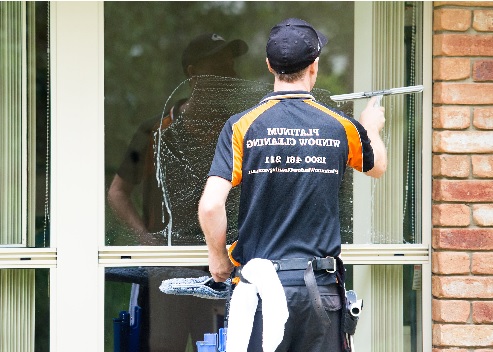 General cleaning of your windows
General cleaning of your windows
If you have installed self-cleaning glass then these will do a good job of taking away half of the workload for you. Usually, it takes around 30 days for this type of glass to ‘activate’ so bear this in mind after installation.
For windows that feature standard glass, cleaning with water and washing-up liquid will do just fine. Avoid using a high powered water hose at any point during the cleaning process, as this is likely to damage the sealant in the frames. Once the cleaning is done, simply wipe down using a dry cloth.
Removing stains
Depending on deep the marks are, how long they have been there, or how often you clean the windows, sometimes using the general cleaning method will not remove suborn stains.
In this scenario, purchase a glass cleaning product that contains xylene, toluene or mineral spirits, following the instructions provided. For self-cleaning windows, be careful on the type of product you choose as it could damage the performance of the glass. Always check carefully before applying to the window. This also applies to using hard cleaning objects, as these can potentially destroy the surface of a self-cleaning window.
Paint removal
We advise that any protective covering you find on your windows after installation should be kept in place if you plan on painting the surrounding area. If you have accidentally got some paint onto the glass this can be removed. Warm, soapy water will be sufficient to wipe away water-based emulsions, and white spirit is best for thicker, spirit-based paints.
Window frame maintenance and cleaning
When it comes to general cleaning of your uPVC windows it is recommended to use a soft cloth with water, mixed either soap or washing-up liquid. If you have thicker grease marks to remove, use a little bit of water mixed with washing-up liquid before rinsing away with clean water.
We recommend that glass cleaners should not be used on the frame, nor should kitchen or bathroom cleaners be applied as they will damage the performance of the window. For tougher, stubborn stains you can use a uPVC cream cleaner for uPVC windows that have not be cleaned for quite some time.
Hardware maintenance
The great thing about uPVC windows is that in areas of normal weather conditions, they hardly ever need any additional care. Locks and hinges should continue to work without issue, and only when they are broken will they require any kind of maintenance.
Metal hinges, however, will need lubricating on occasion, especially if you start to hear them squeak! Simply use light machine oil to do this and do not use any other grease or oil as an alternative. For aluminium or timber windows, consider doing this about once a year.
Always keep an eye on corroded or damaged screws too. If you spot any that are in this condition, replace them as soon as possible, as if left for too long, they could badly damage the frames when removed at a later date.
Dealing with condensation
Condensation is a problem that can affect new and old homes and whenever it becomes a common occurrence it should be dealt with quickly.
It is most likely to occur during the winter when there is much less ventilation let into the home due to the lower temperatures outside. Condensation is likely to occur on occasion, but when it happens on a regular basis, action needs to be taken. Mostly this can be done simply by increasing the ventilation coming into the property.
New windows will usually come with small ventilation shutters, and leaving these open during the winter will help to keep the airflow in the home at an acceptable level. For wooden windows, condensation can lead to rot and mould, so this should be addressed right away.

Added: October 16, 2018 15:26:31
